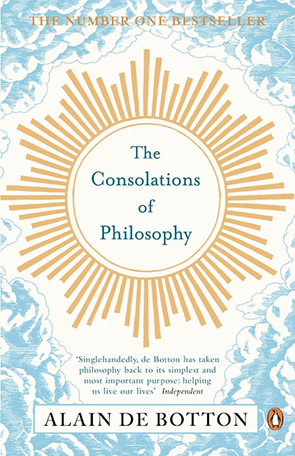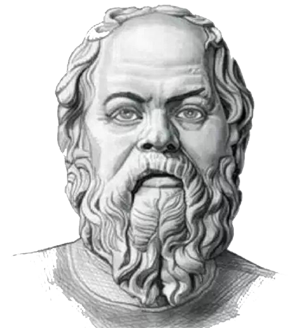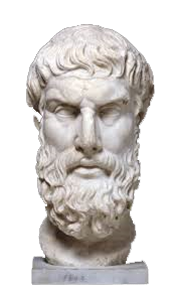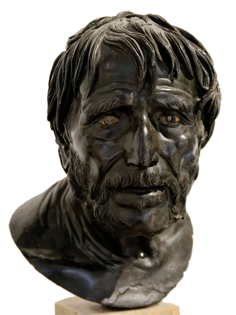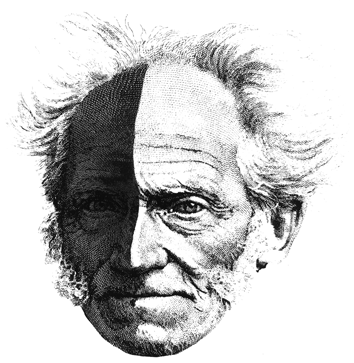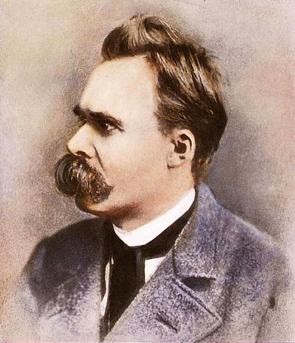Alright, I admit, I’m a sucker for self-help books! I love reading them; they comfort me, and I’m trying to improve my life, bla bla bla. But do they help? I don’t really know, because they are often too perfect, too . . . unreal!
And then I picked up this book, The Consolations of Philosophy by Alain de Botton, and the ancient philosophers slapped me in the face, and it felt like I woke up and realised that of all those self-help books I have read in the past, 80% of them are pop, mass market garbage.
Alain de Botton’s concise, interesting, and PRACTICAL writing about philosophy and how it can help your life was absolutely mind-blowing and life-changing. He completely deconstructed my vision of philosophy as a complex, dry, and impractical thing that only professors in universities understand, and that doesn’t have a real meaning in today’s modern world.
On the contrary, philosophy is an interesting, useful, and ALIVE matter that can and will change your life (without doubt to a more meaningful life) if you invest time and interest in it. Yes, it’s not simple or easy, but what is in this world
Anyway, De Botton organised this book into six chapters, and each chapter is a consolation for a life problem through the philosophy of a certain philosopher.
The first chapter talks about « Unpopularity » and how Socrates’s philosophy can solve this problem. The second chapter talks about « Not having enough money » and what Epicureus would say about that. The third is about « Frustration » and Seneca’s thoughts about that. The fourth, « Inadequcy » is seen through the eyes of Michel de Montaigne; the fifth, « A broken heart » belongs to Schopenhauer; and the final chapter, «Difficulties » is crowned by Friedrich Nietzsche.
It was a real pleasure to discover so many different philosophies and philosophers in such a small book and find ideas and solutions for situations that plague each and every one of us. It was a surprisingly practical book. For example, I was experiencing many train problems during the week when reading the chapter « Frustration », and I was angry. But reading about Seneca’s life and his stoic philosophy, I realised that there is no point in being angry, because anger will not help me in this situation. I managed to keep my head relatively cold (not completely), and made decisions that were not the result of a heated head. Another example was a chapter about money and Epicurus; this is a topic that I’m contemplating in 2024 since I feel like I have unrealistic views about it. It was an inspirational and calming chapter to read that, indeed, I have enough for my life and for the lives of my family. I will not die of hunger, and in any case, according to the philosophy of Epicureus, money doesn’t buy happiness; friendships and love do. And really, as I was trying to think about whether there is something I really miss and that I have to buy to be happier, I couldn’t think about anything. :D
Each chapter was filled with gems like that, so I don’t want to waste your time reading this review anymore because I absolutely recommend this book and I think that you should read and enjoy it. Alain De Botton is a fantastic writer (and speaker) and this book is a perfect introduction to philosophy for beginners (like me), but probably anyone can find many useful ideas, even if you are a philosophy student or professor. I feel like a whole new world has opened in front of me, and I can’t wait to dive into it. I’m sure you will feel that way too.
I first read Alain de Botton a few years ago when I was still teaching. His The Art of Travel was on the HSC list for English (HSC – Higher School Certificate – is the leaving certificate for high school students in NSW, Australia, and provides an entry qualification into university). I took a colleague’s class one day which had been assigned the book. I hadn’t read it so I asked the students about it. I was surprised to discover that the book was universally despised in the class. I was hard-pushed to find a single student who had read it (indeed, who even intended to read it) in its entirety. The feeling was that they would get by with lessons from their teacher and what they could glean from notes from the Internet. This assessment didn’t change the following year when my son was assigned the same book for the HSC. He started it, but he then refused to continue. He claimed there was not one student in his class who liked the book and that no one had read it. This would have seemed unbelievable – at least some students in any class usually like a book being studied – except for my experience the previous year.
Stranger still, I had been curious after my discussion with my colleague’s class and had decided to read the book. I really enjoyed it. I tried to persuade my son that even if he was to only get by as students at my school had decided they would, that he should at least read the final chapter which would provide him something more unusual to talk about on the subject. I couldn’t persuade him.
I tried to understand what was turning students away from the book. There were a series of things I detected by talking to my son and others. One, perhaps most obviously, was that this kind of philosophical essay was outside their reading experience; it was too slow and unstructured; then again, de Botton was also considered pretentious; and de Botton looked and sounded funny (sometimes you have to curse YouTube) whatever that might mean.
So, when I brought The Consolations of Philosophy home after a visit to Sydney last weekend and jokingly suggested I had bought the book for my son, his reaction was predictable.
Nevertheless, I think de Botton’s book has something to offer the curious or those in a mood to have life explained through philosophy. The title is a clue to the nature of the book. De Botton offers a short tour through Western philosophy through the ideas of six prominent philosophers – Socrates, Epicurus, Seneca, Montaigne, Schopenhauer and Nietzsche – by considering their utility for a modern audience: how Socrates might help you put feelings of unpopularity into perspective; how understanding Epicurus’s attitude to possessions and friendship can help someone cope with feelings of poverty; how Seneca provides an insight into human feelings of frustration; how Montaigne’s intercultural perspectives might alleviate feelings of inadequacy; how Schopenhauer’s theories of the biological determinations of love could help someone put a broken heart into perspective; or how Nietzsche’s interests in mountains and horticulture, and his rejection of Christianity and alcohol form a philosophical acceptance of life’s vicissitudes as necessary.
Each chapter of the book provides some biographical background to one of the philosophers which helps contextualise their ideas. Naturally, in a book of this length their ideas are somewhat simplified into the points essential to de Botton’s discussion about the concerns of his modern audience; this is about making philosophy relevant. The value of doing this lies in the reorientation philosophy potentially offers its readers. Epicurus, it turns out, despite his name’s association with sensual enjoyment and indulgence in the modern world, offers a perspective against an acquisitive life, preferring instead to promote the importance of good friendship and personal freedom to facilitate happiness. Schopenhauer’s ideas of human reproduction which he linked to the will-to-life
– the subconscious decisions relating to procreation that drive our lives and render us victims of love’s disappointments (with an argument that seems to anticipate the Selfish Gene theory) – helps provide perspective and some comfort for those hurt by love. And Montaigne, in a seeming reversal of the Platonic eschewing of the physical, steeps his readers in a meditation of scatological delights in order to debunk the civilised ruse that has us believe that, as humans, we are removed from the needs of our bodies, which sets us apart from animals. This, and Montaigne’s advocacy of the importance of travel to promote a wider cultural perspective – it is easier to dehumanise and subjugate other races and cultures if their traditions and ways can be portrayed as weird – make Montaigne seem particularly relevant to the modern world. His ideas, according to de Botton, offer consolation for sexual and intellectual insecurities, as well as an historical perspective of the dangers of what Edward Said has called “othering”, which plagues our modern world today. Think Syria. Thing Rohingya.
This brings us to what this book isn’t. It is not a comprehensive overview of philosophical thought. Detractors of de Botton might criticise the book’s use of philosophy as a popular panacea more appropriate for magazine pop pieces, although I think that view would be harsh and unfair. The book is applicable, certainly, but it is also informative and educational.
Added to this is that the book is narrow in scope and its selections are revealing of de Botton. There are only Western philosophies represented, even in de Botton’s brief asides to other philosophers, so anyone interested in Eastern philosophers need not bother. Also, its selection and arrangement creates what some might consider a false narrative – a sense of inevitable progress from Socrates to Nietzsche, for instance – that privileges the progressive ideals of Western thinking, thereby offering a representation of what has become known as the Enlightenment Project, even if de Botton makes no reference to it. And it is not surprising, since de Botton makes no secret that he is an atheist and that his choice of philosophies is also the story of a progress to Western secular values. I personally have no problem with this, since I have no religion myself, but I think it is important to say what this book is and is not.
Which brings me back to the students I talked about in my long introduction. Perhaps de Botton’s writing isn’t the kind of thing many eighteen-year-olds would wish to tackle. Many of the students I taught were more interested in becoming doctors, so perhaps the artfulness of travel was a little esoteric for their needs. They always wanted to know why they needed to know any particular thing. Perhaps de Botton’s The Consolations of Philosophy might have been more their thing, since de Botton’s theme is the applicability of modes of thinking. Or maybe I liked it where others won’t because it is merely another example of confirmation bias; de Botton’s world view is similar to my own. I think it is still worth a look, especially if you’re tired of those advice columns in magazines. This is philosophy 101 for life.

 RSS Feed
RSS Feed Facebook
Facebook Instagram
Instagram YouTube
YouTube Subscribe to our Newsletter
Subscribe to our Newsletter